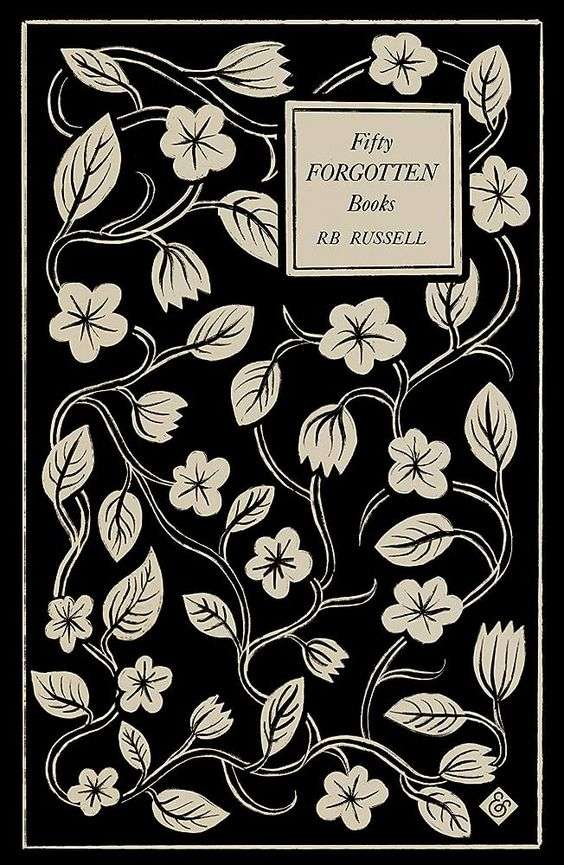FIFTY FORGOTTEN BOOKS by R B Russell from @andothertweets #BookReview #Biography
FIFTY FORGOTTEN BOOKS by R B Russell
And Other Stories p/b £12.99
Reviewed by Nigel Robert Wilson

R B Russell remarks about the emotional experience of a good book. Who can deny that? But then, to a point, all our favourite books are different. This delightful tome is a biographical and informative journey among the books which have stirred Russell in life. Given that he is known as perhaps the greatest fan of Arthur Machen alive today, the narrative happily returns time and again to the glories of Machen’s works and how his heritage and that of others are being organised in these torpid times.
This is a book about bibliophilia and how it can be managed by allowing it to take over your life. The closing sentence of Chapter 18 on Charles Baudelaire’s `Flowers of Evil’ says it all: `an overpriced book is invariably better value than most other pleasures at a discount’. Hear, hear! This probably explains the entire marketing strategy of Tartarus Press, whose magnificent, traditionally produced publications remind us all how true art should be presented, not just by blaring promotional trumpets but as an exuberant statement of both quality and beauty.
To be honest, nostalgia is not for the young. It is the property of older folk, and I can add a few more years onto Russell’s total, but he starts in a world I knew well where there was a second-hand bookshop in every street in every town across the land. What happened to that idyll started long before the internet, and the decline has been ugly.
His first chapter, quite rightly, is about Colin Wilson’s `The Outsider’. In my early bohemian days, I met a number of people who had known Wilson and had tried, quite literally, to bring him in from the outside. They failed, but Wilson was a habitual outsider from start to finish. The issue might not be alienation but imagination, which is drearily lacking in this media age. Needless to say, some of Wilson’s later work sits on my shelves.
What does come across very strongly is the exactitude of Russell’s endeavours. He recognises that bibliography is not just an art but also a science. He has the view that an incomplete bibliography degenerates very quickly into a mere list, thus requiring it to be meticulous in content and respectful to its market. Here is a man who recognises the value in everything whilst not being completely obsessed with price. He is definitely out of step with our times, and amen to that.
Russell describes an appreciation of atmosphere not just in writing but also in bookshops and dwellings. He is quite clearly sensitive, which is probably why he has managed to survive in the madness of the book trade, although his knowledge, expertise and independence have helped enormously.
This is a joyful book. The story is disjointed, and the reader finds themselves being dragged back and forth in time, but it is about books and how the writer feels about them. He does caution the reader against Aleister Crowley’s magical writings, which he describes as a labyrinth of frustration. When it comes to Crowley, I have long enjoyed the remark made a hundred years ago that he was often seen in the Café Royale practising invisibility.
Other bibliophiles will enjoy this book and understand every page. A younger person might find it very instructive too, as there will always be books and a trade in them.

